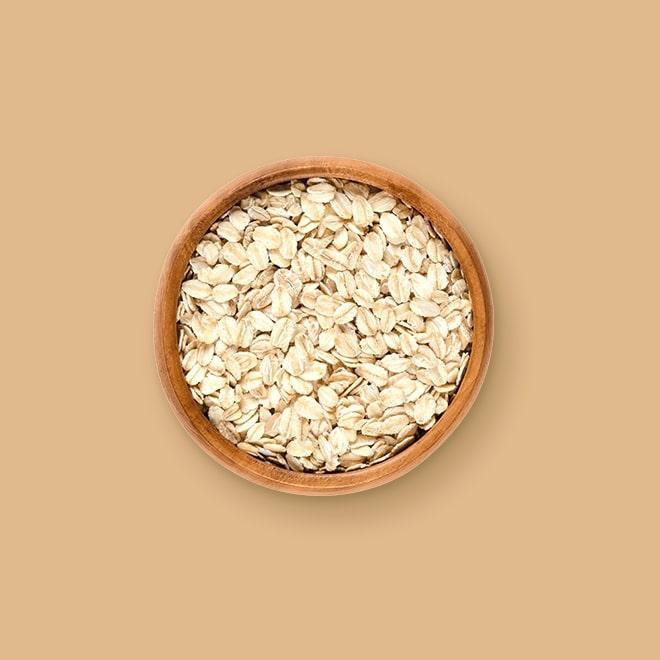Old Fashioned Oat




Old Fashioned Oats and rolled oats are both terms referring to whole oat grains, or groats, that have been steamed and then pressed between rollers and dried. This process makes it easier for the oats to re-absorb water, allowing them to cook faster than the less processed steel-cut oats.
Oats abound in health benefits and are inherently gluten-free. However, cross contamination in production facilities is common, so if you need completely gluten-free oats, you should purchase those that are officially labeled as such.
Store oats in an airtight container in the cupboard to prevent moisture or pests from intruding. They will stay fresh stored this way for two months and will last up to 6 months if stored in the freezer.
Oats are frequently used in beauty products such as body lotions because of their soothing effects. You can emulate this at home by adding raw oats to a hot bath to soothe chickenpox symptoms or even just irritated skin.
Make DIY facial masks by blending oatmeal with yogurt and honey. The oats create a barrier that allows the skin to hold its moisture, while the rough texture of the oat acts as a gentle exfoliant.
Though marketers lead consumers to believe otherwise, the nutritional profile of different styles of oats (steel cut, stone-ground, old-fashioned, and quick-cooking) is essentially the same! However, instant oats are often loaded with sugar when sold, so take a careful look.
To make creamier oatmeal, add the oats to the pan along with the water and salt and cook for 5 minutes, or try swapping in your favorite milk for all or some of the water.
Add oats to your favorite smoothie to boost the fiber content and bulk.
Make homemade oat flour by processing rolled oats in your food processor until it reaches a flour consistency and swap it for some of the AP flour in baked goods to boost the nutritional value.
Oats contain certain fiber that slows down the absorption of carbohydrates. This helps prevent sudden peaks in blood sugar and insulin levels.
When eating one cup of oats per day you'll cover up to 70% of your daily need of manganese. This mineral helps enzymes responsible for bone formation.
Corrections or improvements? Email us at
content@sidechef.com